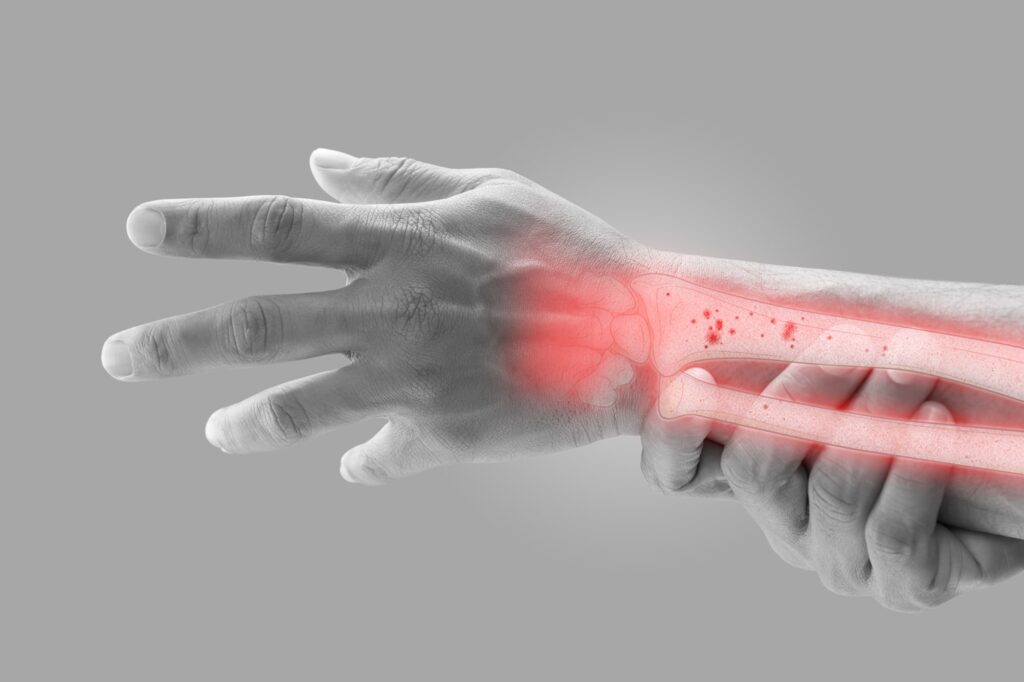A medical disease characterized by weakened and brittle bones due to a loss of bone density and mass. Known as a “silent disease,” it often progresses without noticeable symptoms until a fracture occurs, most commonly in the spine, hip, or wrist.
What Causes Osteoporosis?
The bones in our body are dynamic, constantly breaking down and rebuilding. Osteoporosis disrupts this balance, leading to porous and fragile bones are more prone to fractures. While osteoporosis affects both men and women, it is especially common among women after menopause due to a decline in estrogen levels, accelerates bone loss.
What are the Signs and Symptoms of Osteoporosis?
It has typically remained unnoticed until a fracture occurs, but there are some warning signs:
- Back Pain: This is often caused by fractured or collapsed vertebrae.
- Loss of Height: Over time, weakened spinal bones may compress, leading to a loss of height.
- Stooped Posture: Spinal fractures can cause a hunched or curved back.
- Fractures: Minor incidents, like falling from standing height, can lead to fractures in individuals with severe osteoporosis.
How Can You Prevent Osteoporosis?
Understanding the risk factors and taking active steps help in the prevention of osteoporosis:
- Nutrition: A diet rich in calcium and vitamin D is essential for bone health. Calcium found in dairy products, leafy greens, while vitamin D, which helps absorb calcium, can be obtained through sunlight and supplements.
- Exercise: Regular weight-bearing activities, such as walking, jogging, or resistance training, help to maintain and improve bone density. Balance and flexibility exercises are important for reducing the risk of falls.
- Lifestyle Choices: Avoid smoking, as it interferes with calcium absorption, and limit alcohol consumption, as excessive drinking can hinder bone formation.
What Are the Medical Management Options for Osteoporosis?
For those at higher risk, particularly postmenopausal women, or individuals with a family history of osteoporosis, medical intervention is key. Doctors may recommend:
- Bone Density Testing: A DEXA scan measures bone density and detects osteoporosis early.
- Medications: Medications may be prescribed to slow bone loss or strengthen bones in those at high risk.
How Can You Manage Osteoporosis Effectively?
Osteoporosis can be managed through early detection, a balanced and healthy diet rich in calcium and vitamin D, regular exercise, and avoiding smoking. Medical intervention, including bone density testing and medications, is crucial for those at higher risk. By adopting these strategies, you can effectively manage and reduce the impact of osteoporosis on bone health.
Osteoporosis is a condition that weakens bones, increasing the risk of fractures. Preventive measures like a calcium- and vitamin D-rich diet, regular exercise, and avoiding smoking and excessive alcohol can help reduce the risk. Early detection and timely medical care are crucial for managing the condition and maintaining bone health.



